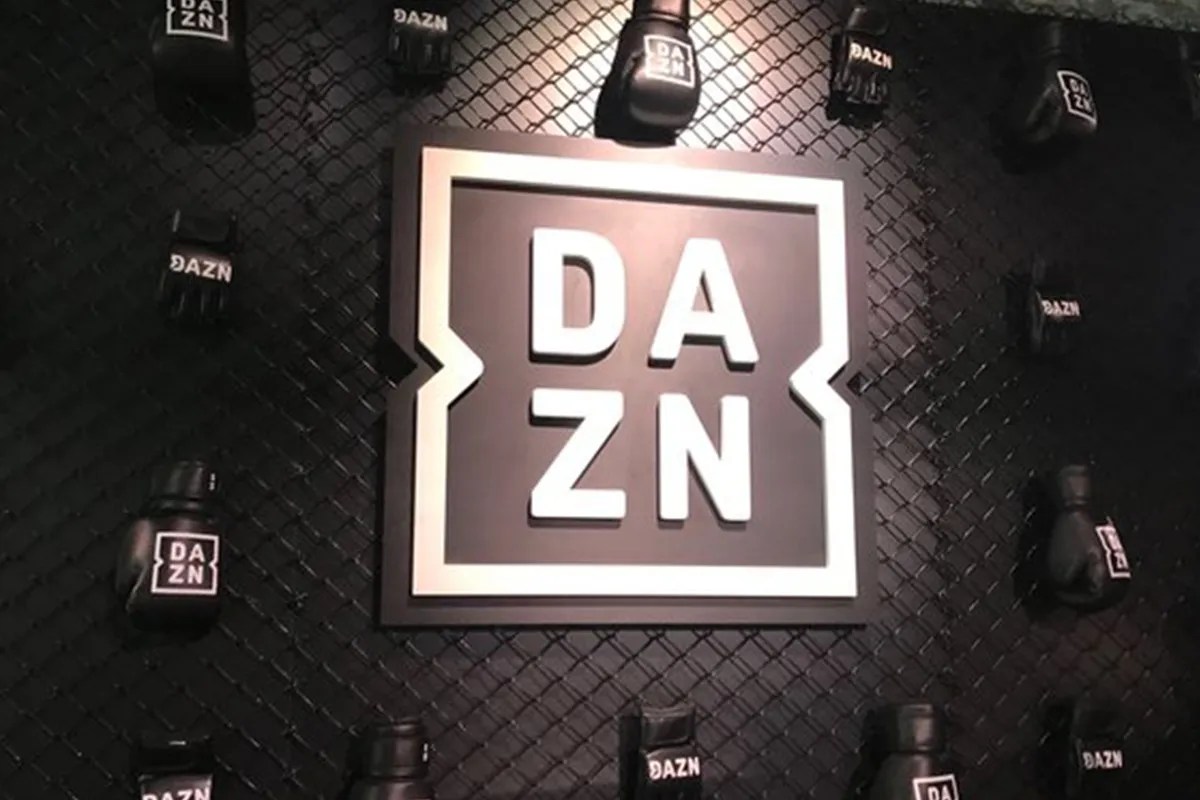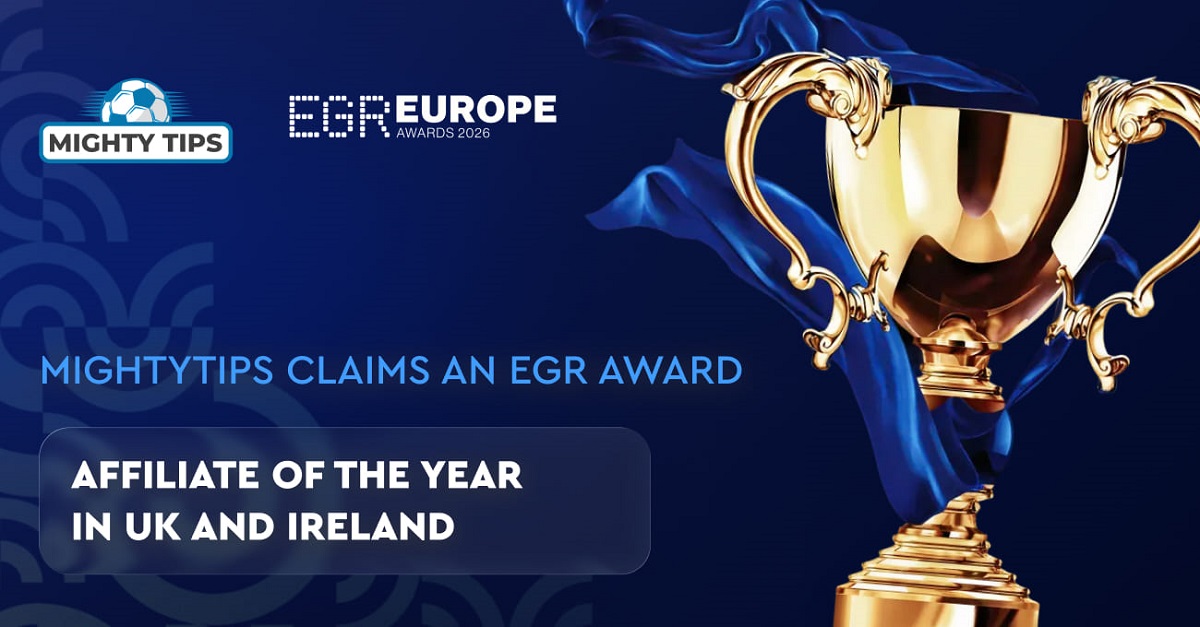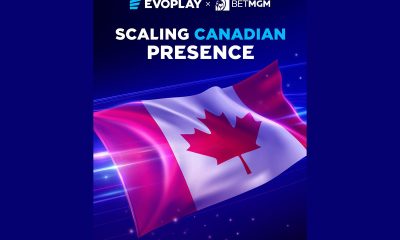Latest News
DAZN ACCELERATES GLOBAL GROWTH MOMENTUM WITH ACQUISITION OF ELEVEN GROUP BUSINESSES

DAZN Group, a leading global sports platform, has today announced an agreement to acquire the ELEVEN Group’s global sports media businesses. The deal expands DAZN’s capabilities in the live sports streaming sector and establishes DAZN as a global leader in this rapidly evolving space. The benefits are threefold.
New and expanded territories. The transaction, when completed, will propel DAZN to become the broadcaster of top football leagues in Portugal and Belgium, two enthusiastic European footballing nations. ELEVEN Group’s businesses will also complement DAZN’s existing market-leading positions in Italy, DACH and Spain, where DAZN holds top tier domestic football rights. ELEVEN also has a presence in Taiwan and other Southeast Asian markets, giving DAZN a greater foothold in the region where it has a market leading business in Japan.
This geographical expansion gives DAZN access to new audiences as it builds out its global platform and becomes a one-stop shop for everything a sports fan wants – a place for them to access the largest library of live and on-demand content, analysis, highlights, merchandise, ticketing, gaming, and betting. It strengthens the business and drives economies of scale.
New revenue stream in social media. The acquisition of Team Whistle, the ELEVEN-owned media business, will enable DAZN to reach younger audiences, diversify and expand its fan engagement capabilities, and maximise the value of DAZN’s rights portfolio. Team Whistle is ranked within the top ten US media sports properties on ComScore with over 700 million followers across its channels, and a growing distribution network that generates around five billion views per month across social platforms. Combining the complementary business of Team Whistle with DAZN’s content rights creates a powerful proposition.
Expanded football rights. The acquisition cements DAZN as a global home of football through the integration of ELEVENsports.com and the 40,000 games it streams each year. Through a strategic relationship, ELEVEN plays a key role in FIFA’s OTT service FIFA+, supporting the production, delivery, and distribution of live games from over 90 FIFA Member Associations. Of note, combined, the companies will create the world’s biggest portfolio of women’s football content. ELEVEN boasts women’s content drawn from across six confederations, adding to DAZN’s impressive roster of UEFA Women’s Champions League, Liga F in Spain, the English FA Women’s Super League and the Women’s FA Cup, and Japanese WE League, among others.
The deal introduces a growing c.$300m a year to DAZN Group’s revenues.
Shay Segev, CEO, DAZN Group, said: “The acquisition adds scale to our business. It is a big step forward in our mission to be the leading global sports platform. I have a great deal of respect for what Andrea, Marc and the team have achieved and look forward to working with them as we further expand our ambitions. Together we form the strongest and most credible management team in the sector. DAZN has invested in building a revolutionary digital sports platform, where fans can enjoy the full range of interactive sport entertainment. We are looking forward to expanding these capabilities to new markets as well as leveraging ELEVEN’s capabilities in DAZN.”
Marc Watson, CEO Eleven Group, said: “We see DAZN as the future of digital sports broadcasting and the ideal home for ELEVEN. Sport is global entertainment and joining with DAZN will be transformative, allowing us to access greater economies of scale and a global platform for our talented team. We couldn’t be more excited about this deal, and I’m really looking forward to working with Shay and the team at DAZN.”
Kevin Mayer, DAZN Chairman, said: “This deal marks an acceleration of our strategy to diversify our offerings and leverage our fantastic sports properties and our platform into new markets and business models. Team Whistle is a growing business that has a proven track record in monetising short form content. It will be hugely valuable to DAZN as we look to generate the maximum value from our enviable rights portfolio, creating new formats of content to reach new audiences and generate powerful incremental revenue streams. We look forward to welcoming all our new colleagues.”
Andrea Radrizzani, ELEVEN Founder & Chairman and Owner of Leeds United, said: “We have developed a successful sports media company in the last six years with ELEVEN, and we’re delighted that this journey continues. The merger will provide greater opportunities as a group to continue to build a global destination for sports fans, which was our mission from day one.”
Upon completion of the deal, Andrea Radrizzani, ELEVEN founder, will join DAZN’s board as an executive director, and will support the DAZN Group’s business development.
Powered by WPeMatico
apostadores
Brasil entra en la fase de endurecimiento post-legalización

Entre el 14 y el 19 de febrero, una secuencia de acontecimientos en Brasil señaló algo más relevante que una simple rutina regulatoria.
Es decir, el país ha entrado en el mismo ciclo político posterior a la legalización observado en jurisdicciones maduras del juego en Europa — la fase de impacto social.
Tras la apertura del mercado llega la expansión.
Tras la expansión llega el escrutinio.
Por lo tanto, Tribunales, Congreso y reguladores federales actúan ahora simultáneamente en torno a una preocupación compartida: exposición y mitigación del daño.
Para operadores e inversores, esta etapa históricamente redefine modelos de negocio más que los impuestos o las licencias.
Italia (2018), España (2020), Países Bajos (2022) y el debate de affordability en Reino Unido siguieron este patrón entre 12 y 36 meses después de la regulación.
Brasil ha llegado más rápido debido a su escala, visibilidad mediática y relevancia política.
Los tribunales se mueven primero: el juego responsable se vuelve arquitectura de interfaz
El impacto operativo más inmediato provino del poder judicial.
Un tribunal del estado de Goiás ordenó a 251 operadores licenciados mostrar advertencias de riesgo de adicción antes de realizar la apuesta.
Asimismo, el mensaje menciona ansiedad, depresión y sobreendeudamiento, transformando el juego responsable de una divulgación legal en una barrera funcional dentro de la experiencia de usuario.
Esto trasciende al propio estado.
El marco de apuestas es federal, pero la defensa del consumidor es estatal. Los fiscales suelen replicar precedentes entre jurisdicciones, lo que permite que las obligaciones se propaguen más rápido por litigio que por regulación.
Para los operadores surge una nueva categoría de riesgo: responsabilidad sobre la conversión.
Todo mecanismo diseñado para reducir la impulsividad afecta métricas comerciales.
El modelo de negocio debe conciliar fricción conductual y optimización de ingresos.
Este fenómeno replica lo visto en Europa, donde el diseño de interfaz — no la licencia — se convirtió en el principal campo regulatorio.
El Congreso apunta a la publicidad — y por lo tanto a la canalización
Mientras los tribunales abordaban la protección del jugador, el Senado avanzó en legislación para restringir publicidad en televisión, radio, prensa, redes sociales, patrocinios y promociones, con multas millonarias e incluso consecuencias sobre licencias.
En regulación del juego, el mayor riesgo rara vez es el impuesto.
Es la visibilidad.
El modelo brasileño depende de la canalización: migrar jugadores del mercado ilegal al regulado. La canalización requiere notoriedad, y la notoriedad requiere marketing.
Las implicaciones económicas son previsibles:
- aumento del costo de adquisición (CAC)
- reducción del ecosistema de afiliados
- menor diferenciación de marca
- mayor competitividad de operadores ilegales
Existen precedentes claros.
Tras el Decreto Dignidad en Italia colapsó la afiliación y creció el offshore. España vivió efectos similares tras el Real Decreto 958/2020.
Brasil enfrenta ahora la misma tensión estructural:
la política pública busca reducir exposición, mientras el mercado regulado necesita visibilidad controlada para existir.
La financiación del deporte se vuelve argumento político
El debate publicitario introdujo un argumento adicional: la financiación del deporte.
De esta forma, ejecutivos advierten que limitar marketing y competitividad de cuotas reducirá volumen de apuestas y por ende transferencias fiscales y patrocinio deportivo.
Esto invierte la narrativa original.
Durante la legalización, las apuestas financiaban el deporte.
Ahora el deporte se usa para frenar la sobre-restricción.
El debate pasó del optimismo fiscal al equilibrio económico, típico de mercados que pasan de expansión a estabilización.
El gobierno confirma supervisión prolongada
El Ministerio de Hacienda, a través de la Secretaría de Premios y Apuestas, publicó la agenda regulatoria 2026–2027 priorizando:
- revisión de licencias
- reglas para loterías
- procedimientos de fiscalización
- bloqueo de pagos
- herramientas de juego responsable
- control de influencers y afiliados
El cambio conceptual es clave. Brasil pasa de regular operadores a regular ecosistemas.
Plataformas, medios, agencias, afiliados y pagos se convierten en objetivos regulatorios.
Esto marca la transición de creación de mercado a supervisión de mercado — señal clásica de madurez regulatoria.
Más competencia mientras cae la libertad comercial
Al mismo tiempo que aumenta la regulación, existen más de 180 operadores autorizados.
Surge la paradoja típica: más competidores justo cuando disminuye la flexibilidad comercial.
O sea, el resultado suele ser consolidación.
Los pequeños dependen de adquisición agresiva y bonos — inviables bajo restricciones y compliance elevado. Los grandes con marca y medios absorben cuota.
El mercado crece, pero la viabilidad se reduce.
Cambio narrativo: de ingresos a riesgo social
El cambio principal es discursivo, no legal.
La legalización se centraba en impuestos y financiación deportiva.
Hoy el debate gira en torno a adicción, deuda y exposición juvenil.
La política sigue ciclos de percepción:
| Fase | Enfoque | Resultado |
| Apertura | Oportunidad económica | Expansión |
| Estabilización | Protección del consumidor | Restricción |
| Madurez | Minimización del daño | Control conductual |
Brasil ya se alinea en la segunda etapa.
Tribunales enfatizan salud mental, legisladores visibilidad y reguladores supervisión.
Esto suele preceder endurecimientos duraderos.
Qué significa para actores internacionales
Por supuesto, Brasil sigue siendo una de las mayores oportunidades globales.
Pero cambia la lógica operativa.
El mercado pasa de:
- crecimiento por adquisición → crecimiento por retención
- escala publicitaria → legitimidad de marca
- velocidad → resiliencia regulatoria
Muchos operadores interpretan esta fase como inestabilidad.
Históricamente es maduración.
Europa mostró que la rentabilidad sostenible llega después de esta adaptación estratégica.
Conclusión: la legitimidad reemplaza al acceso
Los eventos de mediados de febrero no crearon una regla única transformadora.
Crearon convergencia institucional.
Por ello, poder judicial, legislativo y ejecutivo reaccionan a la misma preocupación: el impacto social del juego.
La primera fase definió quién podía entrar.
La segunda definirá cómo operar.
La industria ya no negocia acceso.
Negocia legitimidad.
Y en mercados regulados, la legitimidad — más que la licencia — define la rentabilidad sostenible.
Betnacional lanza una plataforma de comunicación basada en la cultura del hincha en Brasil
Betnacional presentó una nueva plataforma de comunicación llamada “Bota essa paixão pra jogo” (“Pon esa pasión en juego”), con el objetivo de fortalecer la relevancia de la marca y el engagement entre los aficionados deportivos brasileños durante un periodo de alta atención global al fútbol.
Desarrollada en colaboración con la agencia creativa Galeria.ag, la plataforma se construye a partir de una comprensión cultural de cómo los brasileños viven el deporte — caracterizada por intensidad emocional, participación activa y una forma única y expresiva de alentar.
La campaña está prevista para desarrollarse durante el primer semestre de 2026.
Álvaro Garcia, Chief Marketing Officer de Flutter Brasil, explicó que la estrategia busca aprovechar deliberadamente la profunda presencia cultural del fútbol en el país, señalando que casi la mitad de la población ve al menos un partido por semana, dato que evidencia la relevancia cotidiana del deporte.
Acorde estudios internos de Betnacional, el 60% de los apostadores deportivos realiza apuestas tres o más veces por semana, cifra que asciende al 69% entre los usuarios que combinan apuestas deportivas con otros formatos de juego.
Estos insights de comportamiento guiaron la dirección creativa de la campaña.
La iniciativa incluye activaciones multicanal en televisión, plataformas digitales y formatos out-of-home (OOH), con piezas breves pensadas para funcionar tanto en medios tradicionales como en entornos sociales.
Por eso, el enfoque creativo refleja la cultura futbolística brasileña, combinando con frecuencia humor y narrativa emocional para retratar la pasión del hincha como una extensión natural de la vida cotidiana.
Según Ricardo Schreier, Head of Brand Creative & Insights de Flutter Brasil, la plataforma representa un “territorio fértil para construir narrativas” que traduzcan el comportamiento cultural en una expresión de marca consistente.
Además, la campaña también marca el primer gran trabajo de Galeria.ag como agencia líder tanto de Betnacional como de Betfair en Brasil — posición asumida a finales de 2025 dentro de la estrategia integrada de Flutter Brasil, que combina planificación, inteligencia de mercado y ejecución creativa.
The post Brasil entra en la fase de endurecimiento post-legalización appeared first on Americas iGaming & Sports Betting News.
advertising
Brazil enters the post-legalisation tightening phase

Between 14 and 19 February, a sequence of developments in Brazil signalled something more significant than regulatory routine.
The country has entered the same post-legalisation political cycle already observed across mature European gambling jurisdictions — the social impact phase.
After market opening comes expansion.
After expansion comes scrutiny.
Courts, Congress and federal regulators are now acting simultaneously around a shared concern: exposure and harm mitigation.
For operators and investors, this stage historically reshapes business models more than taxation or licensing ever did.
Italy (2018), Spain (2020), the Netherlands (2022) and the UK affordability debate all followed this pattern roughly 12–36 months after market regulation.
Brazil has reached it faster due to scale, media visibility and political salience.
Courts move first: responsible gambling becomes interface architecture
The most immediate operational impact came from the judiciary.
A state court in Goiás ordered 251 licensed operators to prominently display addiction-risk warnings before bet placement.
The mandatory message references anxiety, depression and over-indebtedness, effectively transforming responsible gambling messaging from compliance disclosure into a functional UX barrier.
This matters beyond the state itself.
Brazil’s gambling framework is federal, but consumer protection enforcement is state-driven. Public prosecutors frequently replicate precedents across jurisdictions, meaning obligations can propagate faster through litigation than through regulation.
For operators, this introduces a new risk category: conversion liability.
Any mechanism designed to reduce impulsive betting inherently affects conversion metrics.
The business model must therefore reconcile behavioural friction with revenue optimisation.
This mirrors developments seen in European markets where interface design — not licensing — became the primary regulatory battleground.
Congress targets advertising — and therefore channelisation
While courts addressed player protection, the Senate advanced legislation restricting betting advertising across television, radio, press, social media, sponsorships and promotional campaigns, with penalties including multimillion-dollar fines and potential licence consequences.
In gambling regulation, taxation rarely determines operator viability.
Visibility does.
Brazil’s regulatory logic depends on channelisation: migrating consumers from offshore operators to licensed platforms.
Channelisation requires awareness, and awareness requires marketing.
The economic implications are predictable:
- rising customer acquisition cost (CAC)
- shrinking affiliate ecosystems
- weaker brand differentiation
- improved competitiveness of illegal operators
This dynamic has precedent.
Following Italy’s Decreto Dignità advertising ban, affiliate activity collapsed and offshore presence strengthened.
Spain experienced similar effects among younger demographics after Royal Decree 958/2020.
Brazil now faces the same structural tension:
public policy seeks reduced exposure, while regulated markets require controlled visibility to function.
Sports financing becomes political leverage
The advertising debate has introduced a secondary policy argument: sports funding.
Industry executives warn that reduced marketing capacity and constrained odds competitiveness may lower betting volume and therefore tax transfers and sponsorship revenue to sports organisations.
This represents a narrative reversal.
During legalisation debates, betting was justified as a mechanism to finance sport.
Now sport is used as an argument against over-restriction.
The political discussion has shifted from fiscal optimism to economic trade-offs — a transition typical of markets moving from expansion to stabilisation.
Federal government confirms long-term supervision
The Ministry of Finance, through the Secretariat of Prizes and Betting, published its 2026–2027 regulatory agenda prioritising:
- revision of licensing criteria
- lottery operational rules
- enforcement and monitoring procedures
- payment blocking mechanisms
- responsible gambling tools
- oversight of influencers and affiliates
The conceptual shift is crucial.
Brazil is moving from regulating operators to regulating ecosystems.
Further, platforms, media partners, marketing agencies, affiliates and payment channels become enforcement targets.
This marks the transition from market creation to market supervision — a defining milestone in regulatory maturity.
Competition increases as commercial freedom narrows
At the same moment regulation tightens, the number of licensed operators exceeds roughly 180 platforms.
This produces a classic newly regulated market paradox:
More competitors entering precisely when commercial flexibility declines.
The usual outcome is consolidation.
Smaller operators depend on aggressive acquisition strategies and bonus-driven growth, both incompatible with advertising limits and rising compliance costs.
Larger operators with brand equity and media partnerships absorb market share.
Growth therefore continues — but viability narrows.
Narrative shift: from revenue opportunity to social risk
The most important change is rhetorical rather than legal.
Legalisation was framed around taxation, formalisation and sports funding.
Current public discourse focuses on addiction, indebtedness and youth exposure.
Public policy follows perception cycles:
| Phase | Dominant framing | Regulatory behaviour |
| Opening | Economic opportunity | Expansion |
| Stabilisation | Consumer protection | Restriction |
| Maturity | Harm minimisation | Behavioural control |
Basically, Brazilian institutions now align around the second stage.
Courts emphasise mental health, legislators visibility, regulators supervision.
Such alignment historically precedes durable regulatory tightening rather than temporary intervention.
What this means for international stakeholders
Brazil remains one of the largest global betting opportunities.
However, the operating logic is changing.
The market is transitioning from:
- acquisition-driven growth → retention-driven growth
- marketing scale → brand legitimacy
- speed → compliance resilience
International operators often interpret this phase as instability.
Historically, it signals maturation.
Across Europe, long-term profitability emerged only after this stage forced operators to adapt operational discipline, customer lifetime value strategies and media partnerships.
Conclusion: legitimacy replaces entry as the main barrier
The developments of mid-February did not introduce a single transformative rule.
They created institutional convergence.
Judiciary, legislature and executive authorities are reacting to the same concern: the social footprint of betting.
The first phase of Brazil’s regulated market determined who could enter.
The second will determine how they may operate.
The industry is no longer negotiating access.
It is negotiating legitimacy.
And in regulated gambling markets, legitimacy — more than licensing — ultimately defines sustainable profitability.
Betnacional launches culturally-driven communication platform in Brazil
Additionally, Betnacional has unveiled a new communication platform called “Bota essa paixão pra jogo” (“Put that passion into play”), aimed at strengthening brand relevance and engagement among Brazilian sports fans during a period of heightened global football attention.
Developed in partnership with creative agency Galeria.ag, the platform is built around a cultural understanding of how Brazilian fans experience sport — characterized by emotional intensity, active participation and a uniquely expressive approach to cheering.
The campaign is designed to run through the first half of 2026.
Alvaro Garcia, Chief Marketing Officer of Flutter Brazil, explained that the strategy deliberately taps into football’s deep cultural presence in Brazil, noting that nearly half of the population watches at least one match per week — a statistic that underscores the sport’s daily relevance.
According to internal Betnacional research, 60% of sports bettors place bets three or more times per week, with that figure rising to 69% among users who combine sports wagering with other betting formats. These behavioural insights helped guide the creative direction of the campaign.
The initiative includes multi-channel activations across TV, digital platforms and out-of-home (OOH) formats, with short creative pieces designed to resonate both in traditional media and social environments.
The campaign’s creative approach reflects Brazil’s football culture, often blending humor with emotional storytelling to portray fan passion as a natural extension of everyday life.
According to Ricardo Schreier, Head of Brand Creative & Insights at Flutter Brazil, the platform serves as a “fertile territory for building narratives” that creatively translate cultural behaviour into consistent brand expression.
This campaign also marks the first major work of Galeria.ag in its role as lead agency for both Betnacional and Betfair in Brazil — a position the agency assumed at the end of 2025 as part of Flutter Brazil’s integrated strategy combining planning, market intelligence and creative execution
The post Brazil enters the post-legalisation tightening phase appeared first on Americas iGaming & Sports Betting News.
2026 EGR Europe Awards
MightyTips takes home EGR’s Affiliate of the Year title for the UK & Ireland

MightyTips was honored with the Affiliate of the Year award for the UK and Ireland at the 2026 EGR Europe Awards gala. The event took place on 18 February at the Hilton Malta in St. Julian’s, bringing together leading figures from the European iGaming sector.
This acknowledgment comes after a year of considerable expansion and product advancement for MightyTips. In 2025-2026, the brand underwent a significant website enhancement, improving its structure, navigation, and user experience.
Key updates included:
- launch of a new Tips section featuring short, expert-backed insights on betting opportunities;
- fully reworked sports predictions section with more structured, data-driven analysis;
- introduction of a new bonus section with a user-friendly, informative interface that clearly presents licensed operators’ offers.
MightyTips is an internet betting resource operated by SEOBROTHERS. In 2026, MightyTips was nominated for the EGR Affiliate of the Year award in Central and Eastern Europe.
Eugene Ravdin, Head of PR at SEOBROTHERS, commented: “The EGR Europe Awards are among the most established industry recognitions in the region. Winning it highlights the consistent work of the MightyTips team across multiple departments. This achievement reflects our long-term strategy and our commitment to sustainable product development.”
The EGR Europe Awards celebrate businesses that influence the iGaming sector throughout Europe. They acknowledge operators, affiliates, and suppliers establishing benchmarks in innovation, sustainability, customer experience, and product development. Regional categories highlight the advantages of particular markets, encompassing Central and Eastern Europe.
The accolade additionally acknowledges broader regional reach and enhanced collaborations with licensed operators in the UK and Ireland. MightyTips stays dedicated to delivering organized, data-oriented content for regional audiences, emphasizing compliance, transparency, and sustainable development.
The post MightyTips takes home EGR’s Affiliate of the Year title for the UK & Ireland appeared first on Eastern European Gaming | Global iGaming & Tech Intelligence Hub.
-

 Amusnet7 days ago
Amusnet7 days agoWeek 7/2026 slot games releases
-

 Brino Games7 days ago
Brino Games7 days agoQTech Games integrates more creative content from Brino Games
-

 Aphrodite’s Kiss7 days ago
Aphrodite’s Kiss7 days agoLove on the Reels: Slotland Introduces “Aphrodite’s Kiss”
-

 Alex Malchenko7 days ago
Alex Malchenko7 days agoEvoplay Strengthens Canadian Presence with BetMGM Partnership
-

 3 Oaks Gaming7 days ago
3 Oaks Gaming7 days ago3 Oaks Gaming Enters Spanish Market
-

 AMLA7 days ago
AMLA7 days agoAMLA Launches Public Consultation on Three Draft Regulatory Acts
-

 Latest News7 days ago
Latest News7 days agoRed Papaya Presents: Lucky Rainbow Rush Adventure
-

 3 Oaks Gaming7 days ago
3 Oaks Gaming7 days ago3 Oaks Gaming Secures Registration from MINCETUR to Enter the Regulated Peruvian Market



















